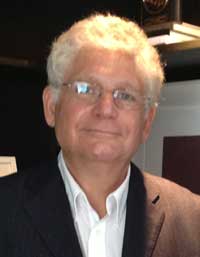2034: Familiar Storyline, Powerful Lessons
When I read fiction, I almost always take a backward-looking glance, getting a handle on the world that was and then comparing it to the world today. I especially enjoy reading British novelists and playwrights, such as Anthony Trollope in The Way We Live Now (1875), J.B. Priestley in An Inspector Calls (1945), and Caryl Churchill in Top Girls (1982). 2034 travels in the opposite direction, of course, speculating about what the future might bring based on what is going on today.
Irrespective of direction—back-glancing or forward-looking—I found the storylines to be the same. One thing is constant amid all the changes between now and then, and between what Ackerman and Stavridis depicted in 2034 and what life is like today. It is us. Many of the values and attitudes, what we squabble over and about, and our attachment to power/control and ‘being on top’ … the list is long … persists.
One reason is that The Seven Virtues—prudence, justice, temperance, courage/fortitude, faith, hope, and charity—are always in jeopardy because The Seven Deadly Sins—pride, greed, wrath, envy, lust, gluttony, and sloth—always get in the way. And what we say about individuals applies to institutions, organizations, and society, too. Why? They are populated with (drumroll, please) people.
I began noting all the passages in the book where ages-long mindsets get in the way, dangerously so at times—things like arrogance, hubris, and complacency. Of all the passages of note, one stood out. In it, Lin Bao imagines he is teaching a class….
Students would ask, “Why had it (a nation’s reign) ended?” His answer: “The end came—as it always does—from within.” …. “He would explain this patiently, like a father telling a beloved child that the Easter Bunny or another cherished tale didn’t exist, and while his students’ puzzled expressions fixed on him, he would tell them about the Spartans …Athens … Britain … Rome … and the empire always rots from within…. They would start back in disbelief, or even hostility. Their assumption would always be that the time in which they lived could never be usurped; it was singular, as they believed themselves to be singular. Endemic dysfunction in America’s political life hardly mattered because America’s position in the world was inviolate. But a few of his students, their faces clear in his imagination, would return his star as if his understanding had become their own.”
(Hardcover version, p. 223)
Soon after finishing the book, I asked: “What does 2034 teach me about what I need to do?” One lesson screamed for attention: I cannot stand there, do nothing, and accept where things might lead, hoping that they will not. Through silence and inaction, bystanders become enablers, and, with that, they share in the blame.
Then I thought about how important it is to act with prudence (one of those seven virtues). Pulling that off requires an elevated way of engaging others and the world. Voilà! The Serenity Prayer came to mind. Written by Reinhold Niebuhr nearly a century ago, The Serenity Prayer begins with this well-known passage:
God grant me the serenity
to accept the things I cannot change;
courage to change the things I can;
and wisdom to know the difference.”
Niebuhr’s words, although easy to affirm, are difficult to put into practice. Discernment (another virtue in my book) is required. So how might we proceed? One way is to use spaces, places, collaborations, and opportunities to advance ideas and approaches to reform, innovate, and transform whenever and wherever possible. The italicized words are critical because (per Niebuhr) we also need to acknowledge and accept what we cannot change. Anything but automatic, that ability resides at the sweet spot of ego management and accurate social analysis/pulse-taking. Brilliant people with great intentions can fail when dealing effectively with one or both sides of those demands.
I credit my colleague, John Duley, for helping me understand that matter. Niebuhr, by the way, taught Duley in the late 1940s at Union Theological Seminary, and Duley, who lived his life in testimony to the virtues Niebuhr espoused, became my mentor thirty years later. John taught me (and others) many things over the years, and I spent a good share of summer 2020 interviewing him about his life and work. I documented it by way of oral history. I’m glad I did. Last month, John passed away at 100.
Life connects people and experiences in unexpected ways, in this case connecting 2034, Reinhold Niebuhr, John Duley, The Politics for the People Book Club, and me. 2034 and The Book Club played pivotal roles, providing content and a platform to sharpen my thinking and express my thoughts. That is a powerful endorsement, showing what literature and a book club can do.
Kudos to Elliot Ackerman and James Stavridis for writing such a stellar piece, and to Cathy Stewart, for making it this month’s selection. And—I might add—let me tip my hat to the genre of the text. Fiction contributes in ways that non-fiction cannot.
Frank A. Fear is professor emeritus, Michigan State University, where he served as a faculty member for thirty years and worked in various administrative positions for nearly twenty years. Frank also writes about issues that intersect sport and society.
***

JOIN US
Thursday, August 12th at 2pm ET
For the Politics for the People ZOOM Event
With 2034 Authors Elliot Ackerman
and Admiral James Stavridis
CLICK HERE TO RSVP!



The Serenity Prayer has been on my mind a lot lately.
I am always gratified at what I learn whenever Frank Fear writes. Wish I could have taken a few classes from him! His paragraph on the Seven Virtues and the Seven Deadly Sins is a useful reminder of the power of seven. His paragraph on “what did 2034 teach me” is a priceless reminder of our responsibilities as thinking citizens. If we learn and still do nothing, what difference can we possibly make?
Thank you, Frank.
I love this statement. Beautifully written, heartfelt and thoughtful.